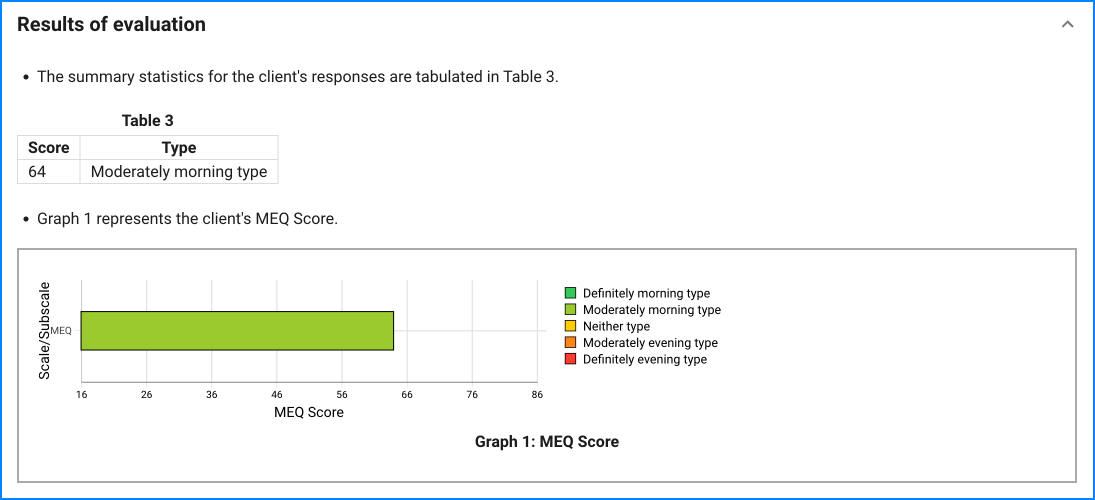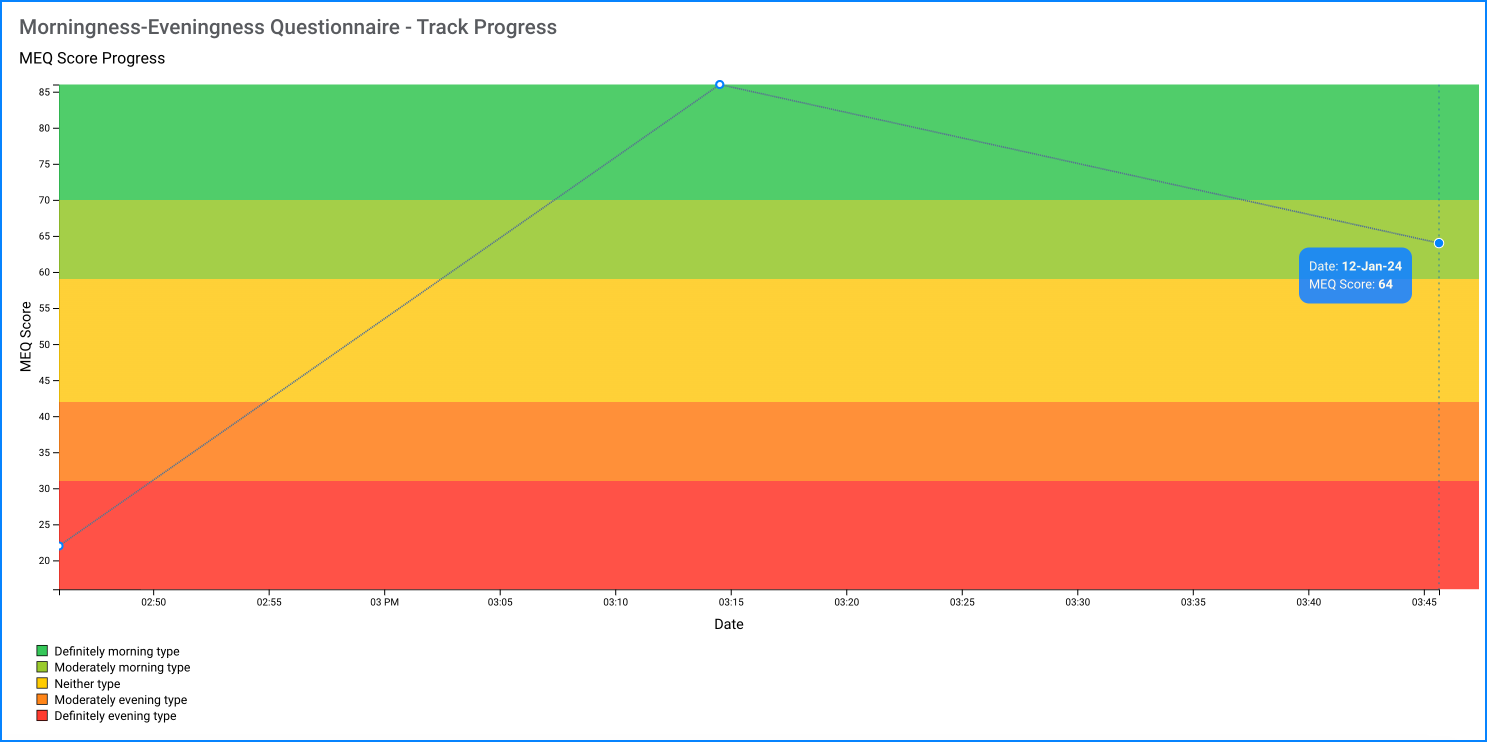The questionnaire asks 19 questions, selected to assess morningness-eveningness. Most of the answers are forced choice, with no 'do not know/cannot decide' category. Four choices of answer are given, indicating: definite morning type, moderate morning type, moderate evening type, and definite evening type. A time scale is employed for a few questions. Each question is given a loading factor determined from item analysis. The scores are added and the sum converted into a five point morningness-eveningness scale: definitely morning type (70–86), moderately morning type (59–69), neither type (42–58), moderately evening type (31–41), and definitely evening type (16–30).
The Morningness-Eveningness Questionnaire (MEQ) is a 19 items scale developed to assess morningness-eveningness – the degree to which respondents are active and alert at certain times of day. Scale items query preferences in sleep and waking times, and subjective “peak” times at which respondents feel their best.




